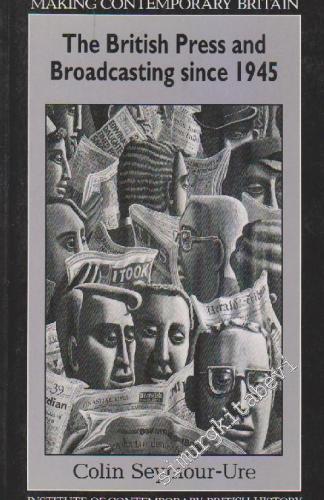1199166676
552825

https://www.simurgkitabevi.com/the-british-press-and-broadcasting-since-1945-making-contemporary-britain
The British Press And Broadcasting Since 1945: Making Contemporary Britain - #smrgSAHAF
0.00
This is the first concise history of the press and broadcasting in Britain after the Second World War, from a time when the phrase 'mass media' was barely used to the Maxwell and Murdoch era of international media conglomerates. Supported by detailed tables, the book traces changes in what was available and what people used - the size and ownership of the national and provincial press; the growth of television and the impact of ITV; the decline and revival of radio; the continuities and differences in what people read, looked at, listened to and liked. Seymour-Ure's analysis also explores the often queasy relations between media and government. Television increasingly elbowed into politics, while politicians worked harder at news management. Governments became more active in media policy - on press mergers, new TV channels, and traditional questions of freedom of information. Such developments gave extra point to the issue of media accountability. How did the new baronies justify themselves to the public? Which was the greater threat by the start of the 1990s: abuse of power by the media or abuse of media by the government?.
This is the first concise history of the press and broadcasting in Britain after the Second World War, from a time when the phrase 'mass media' was barely used to the Maxwell and Murdoch era of international media conglomerates. Supported by detailed tables, the book traces changes in what was available and what people used - the size and ownership of the national and provincial press; the growth of television and the impact of ITV; the decline and revival of radio; the continuities and differences in what people read, looked at, listened to and liked. Seymour-Ure's analysis also explores the often queasy relations between media and government. Television increasingly elbowed into politics, while politicians worked harder at news management. Governments became more active in media policy - on press mergers, new TV channels, and traditional questions of freedom of information. Such developments gave extra point to the issue of media accountability. How did the new baronies justify themselves to the public? Which was the greater threat by the start of the 1990s: abuse of power by the media or abuse of media by the government?.
Yorum yaz
Bu kitabı henüz kimse eleştirmemiş.















